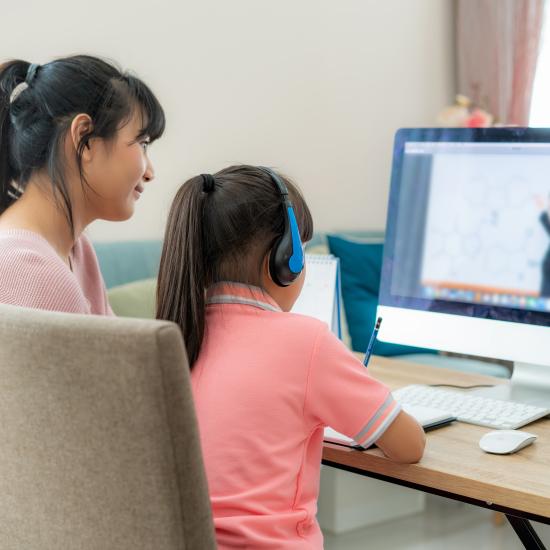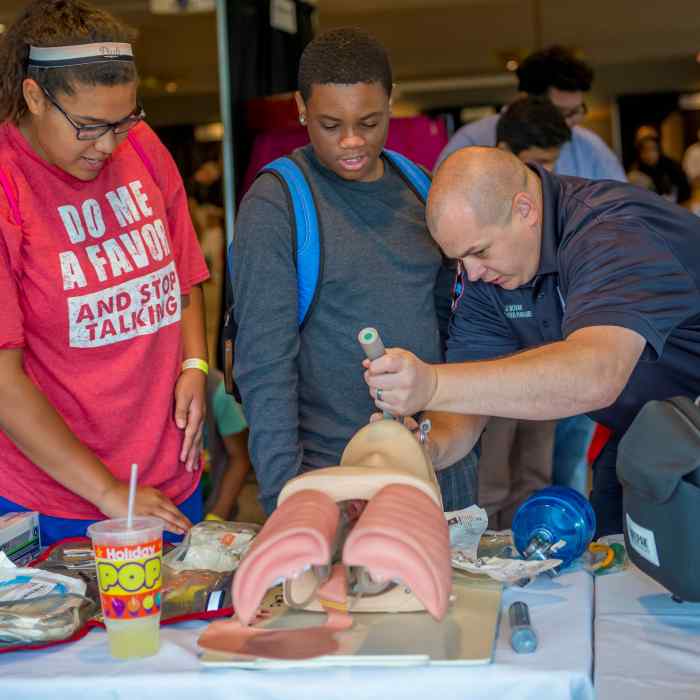Tips for Improving Kids’ Behavior While Distance Learning: What I Learned from the Experts
Positive Behavioral Interventions and Supports (PBIS) is an evidence-based framework that thousands of schools use to improve school climate and students’ behavior in all areas of the school. For the past 10 years, my colleagues and I have been working with the Minnesota Department of Education and their regional partners to evaluate how schools in Minnesota use PBIS.
Like many of you, I’m teaching my kids at home. So, I turned to what I know about PBIS for guidance. Here are a few key things that I have learned about what makes PBIS work for teachers that might be useful for parents who are now trying to support distance learning during the COVID pandemic.
Be consistent about expectations.
One of the basic principles of PBIS is that you must set and then consistently enforce behavior expectations and that all school staff (all parents and caregivers, in this case) should be using the same rules and enforcement practices.
The rules should be positively worded (“Wash your hands,” “Speak in a quiet voice,” or “Ask for help when you need it”) and location specific (for example, you may want different rules for the bathroom than for being outside in the yard).
Use positive verbal reinforcements.
Don’t forget the “positive” part of PBIS. There is a guideline that students (your children) should receive five positive verbal reinforcements for every one negative correction. This can take a lot of observation and attention on your part (some days are harder than others!) to notice when a child is doing the right thing. But when you verbally acknowledge them for that positive behavior you can just see them light up, and they’ll probably do it again next time too!
PBIS practitioners in schools use a reward or ticket system to recognize good behavior. These tickets can be redeemed for fun things. At home, you can try handing out tickets to your kids when they do a good thing. They can save these up and cash them in later for screen time, a special toy or treat, or time playing a game with you.
Use real data from your observations to figure out what works.
Yes, I am asking you to be a researcher AND a teacher! PBIS experts know you need to use your data to determine when and where behavior issues occur, for individual students or the whole class/family, and then tailor your interventions accordingly.
In my house, I have learned from many years of observation and trial and error that my children are not eager to finish their chores or practice their instruments if they first spend the morning watching TV. If, instead, I restrict the screen time until after all of their jobs are done (and in fact hold that screen time over their heads and use it as a consequence if I need to) then I can more readily secure compliance and participation in required activities.
Some rewards or consequences (like adding or removing screen time privileges) may be universally effective for all of your children/students, and others may be more effective for some children than others. For example, my older child loves cooking and will be incentivized to maintain good behavior if she will then have a chance to cook with me. My younger child doesn’t particularly enjoy food preparation activities, so I offer different rewards to him.
Ultimately, we need to remember that our children’s behavior is a reflection of their needs and emotional state, not a reflection of them as people or us as parents. You may never have wanted to be a teacher (I know I sure didn’t!), but since we’re stuck with this job for a while we might as well learn from the professionals about how to keep things happy and positive while distance learning, or just parenting in general!


